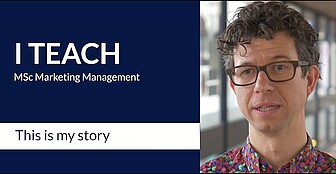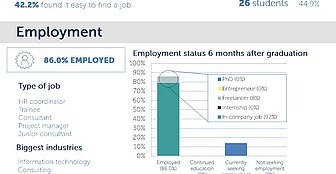
This website uses functional cookies, including analytical cookies. The obtained statistical data cannot be traced back to individual users. Additionally, you can choose to accept or refuse consent to use marketing cookies. If you decline these additional cookies or refrain from making a choice, only functional cookies will be set. See our cookie policy for more information.
Article: Thursday, 6 November 2014
As individuals, we define ourselves according to various characteristics that include our values and beliefs. This gives us our identity. As organisations become increasingly complex, understanding the concept of identity conflict may mean the difference between success and failure.
What is identity? Simply put, identity is a collection of values and roles. Identity can be individual, it can be organisational, and it can be national or global. The scope of an identity may change but the psychological mechanisms do not. Wherever there is a person there is identity, and wherever there is identity there are sub-identities and the potential for identity conflict.
The way we define ourselves as individuals and as a collective plays a fundamental role in how we relate to the rest of the world. We all wear many hats: we are our parents’ children; we are our children’s parents. We are workers, friends, and volunteers. We are religious, agnostic, or atheist. We are women, men, short, tall, extroverted, and introverted. Some of our identity markers are inescapable: the colour of our skin or our place of birth. Yet other markers are malleable: our clothing style, our hobbies, and our dreams.
The same is true of organisations. A successful organisation has one clear identity, but as with individuals there are many sub-identities. The interplay between these identities is dynamic, creating subtle and overt tensions. Some of these tensions may have negative consequences, but some are a powerful force for positive change.
A classic example of tensions between organisational sub-identities is the interplay between a university faculty focused on research/teaching and the vast administrative body that manages operations. The success of the university (the success of its hybrid identity) depends on both of these bodies yet there are times when the values of each are so disparate that there is disharmony.

A successful organisation has one clear identity, but as with individuals there are many sub-identities.
While there is a wealth of literature that examines workplace conflict, diversity, and other identity-related topics the different disciplines tends to ignore each other. In our work with large complex organisations, it became clear that very few researchers are viewing these complex issues through the lens of identity conflict. Identity was a secondary concern, if it was mentioned at all. Our paper Identity conflicts at work: an integrative framework set out to create a coherent narrative from disjointed and fragmented research.
When there is a clash of values, identity conflict is at its core. The values of an individual may clash with the values of the workplace. The values of one department may clash with those of another (faculty vs administration). When this identity conflict occurs, there are two possible methods to deal with it:
A working parent may pretend that they do not really need to leave work to collect a child. A Muslim employee may deny their need for a prayer room and for regular prayer breaks. This denial of a powerful sub-identity is common, and the results are fairly predictable: burnout, stress, low performance, and lack of job satisfaction. Both the employee and the employer suffer from the despondency and lack of productivity brought about by an unresolved identity conflict.
Doing this on an individual level can positively affect the identity of the whole organisation. This process begins with simply acknowledging the conflict and implementing a logical resolution. The working parent may begin leaving at 5pm, without guilt or apology. The Muslim employee may approach their managers with a request for a prayer room and the regular breaks required to use it. Although this may seem counterproductive on the surface, as time is taken away from work, in practice it benefits the organisation, the individual, and other employees who enjoy the trickle-down effect. Other working parents within the organisation may feel empowered to strike a better work-life balance, which in turn increases their workplace productivity. Other employees who appreciate a dedicated space to meditate or just gather their thoughts may enjoy a prayer room.
Identity conflict isn’t always a bad thing. The creation of pearls requires irritation and friction. In the same way, identity conflicts can be a catalyst for positive personal and organisational growth and change. The marginalised gay and lesbian Presbyterian ministers who refused to ignore their sexual identities and instead embraced and used them as forces of change within the Church are examples of tempered radicals. A tempered radical is someone who is deeply embedded in an institution (a church, a workplace, a university) but rather than simply accepting the structure of the institution, he or she is able to critique it for effectiveness. A tempered radical may say, “I am a science teacher in a primary school that values flexible learning. This school, like all other schools, groups children according to their birthdates. Does this action support our school’s identity? Would we be more true to our values if we grouped children according to their ability in science instead of their age?”
A tempered radical may be seen as a troublemaker. But for organisations unafraid of constructive criticism or change, a tempered radical can be an invaluable asset. Not only can he or she offer innovative insight, but they often care deeply about the organisation in which they are embedded. As the organisation represents one of the tempered radical’s own identities, protecting and supporting the organisation is akin to protecting and supporting themselves. A stronger ally is difficult to find.
It is not only tempered radicals who bring about positive change within organisations through the successful balancing of multiple identities. A young newcomer may push her conservative company to embrace the power of social media. Employees from a variety of cultures, religions, and age groups will offer insight and tips for success that a homogenous corporate culture is simply incapable of generating.
We have worked closely with large and very complex organisations, including police forces. A police force is a perfect example of an organisation that uses diversity to understand and reflect a greater group of collected identities. By recruiting officers from all religions, ethnicities, age groups, genders, sexual orientations, and marital statuses, a good police force is able to communicate quickly and with compassion with all members of the general public.
…identity conflicts can be a catalyst for positive personal and organisational growth and change.
There are always roles that must be played that we simply don’t like. This is an inevitable part of life. However, during the course of our research we were humbled to find that rather than ‘discovering’ that there are jobs no-one wants, we instead found the opposite to be true: for every professional role, there is someone who is fulfilled by it – someone who brings purpose, nobility, and strong values to their working identity. This theme was consistent across all the fields we looked at and all socio-economic brackets.
While it would be unwise to dismiss the psychological and physical effects on people working in extreme roles (soldiers on active duty, or people exploited in dangerous working conditions), it is important for managers to understand that there is no need to force a person to work in a role that does not align with their core identity. That energy is better spent ensuring that their employees’ core values align with their assigned role.
Our message to managers is this: dare to look at identity conflicts. Dare to accept them. This is the reality of people working in your organisation. It is the reality of intra- and inter-departmental tension. This multi-level perspective is really important. Whether conflict is individual, interpersonal, or international, it’s always the same story: on all these levels we have a need for authenticity. The same psychological triggers apply. By knowing these triggers and understanding that the identities they invoke are strong but not dangerous, an organisation has an invaluable advantage over its peers.

This article draws its inspiration from the paper "Identity conflict at work: an integrative framework", written by Kate E. Horton, P. Saskia Bayerl and Gabriele Jacobs. It has been published in the "Journal of Organizational Behavior" (P), 35, S6-S22 (2014). http://onlinelibrary.wiley.com/doi/10.1002/job.1893/full

This review examines workplace identity conflicts, offering three primary contributions. First, it reconciles hitherto fragmented perspectives on identity conflicts to offer an integrative and cross-level perspective on identity conflicts at work. Second, it elucidates an important distinction between two types of identity conflicts, namely intra-unit and inter-unit conflicts, also outlining the different roots, moderators, and reconciliations of these conflict types. Third, it proposes an alternative perspective on identity conflicts as constructive forces for individual and organizational change, also stressing the importance of context and content in shaping identity conflict outcomes. Thus, this paper provides a comprehensive overview of identity conflicts in the workplace, clarifying the current state of the science and offering new directions for future research.



















Science Communication and Media Officer
Rotterdam School of Management, Erasmus University (RSM) is one of Europe’s top-ranked business schools. RSM provides ground-breaking research and education furthering excellence in all aspects of management and is based in the international port city of Rotterdam – a vital nexus of business, logistics and trade. RSM’s primary focus is on developing business leaders with international careers who can become a force for positive change by carrying their innovative mindset into a sustainable future. Our first-class range of bachelor, master, MBA, PhD and executive programmes encourage them to become to become critical, creative, caring and collaborative thinkers and doers.
